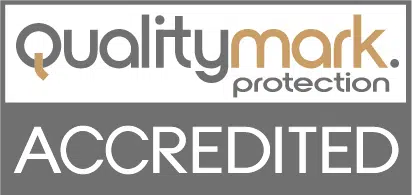Apply for home insulation grants for disabled people with Effective Home’s support
Are you looking to insulate your home for a fraction of the price? Or perhaps you're hoping for free insulation? Both are possible with insulation grants for disabled individuals, and you can access them with our support. Work with Effective Home today to slash your energy bills and enjoy a more comfortable home.
Can I get a government grant to insulate my home as an individual with disabilities?
There aren’t grants specifically for disabled people to insulate their homes. There are, however, grants available that will certainly be relevant to you. These are:
Browse our insulation range below
How does the Great British Insulation Scheme for disabled people work?
GBIS can offer cheap or free cavity wall insulation, loft insulation, internal wall insulation, or another insulation measure to individuals with disabilities, if they qualify under one of two groups: Low Income, or General.
- Low Income Group: Designed to support low income households with cheap or free loft insulation, cavity wall insulation, or another insulation measure that's appropriate to your home. The aim here is to help raise your EPC (energy performance certificate) rating. If you live in a rented home with an EPC rating of E or less, or a home you own with a rating of D or below, and someone in your household receives qualifying benefits (means tested relating to income - not disability related benefits), OR you're considered vulnerable to living in colder conditions because of your disability, then you may qualify for support under this group.
- General Group: This group is designed to help those who own their home and live in council tax band A-E in Britain (A-D in England specifically) and have an EPC rating of D or below, qualify for support.
The amount you receive will depend on your circumstances, which may mean you receive a free insulation grant or a significantly cheaper insulation measure for your home. Work with Effective Home today and see if you qualify for support with GBIS.
Can I get free insulation through ECO4 as a disabled person?
There are three main groups that can qualify for ECO4 support: a Help to Heat Group, Social Housing Group, and ECO Flex Group, and any one of them could result in free insulation. ECO4 offers a range of home improvements, insulation included, so insulation grants for disabled people are available here.
- Help to Heat Group: Qualifying for this group will mean you're a private tenant or live in your own home, be considered a low income household who may be struggling with heating bills, and your home's energy efficiency will need to be rated D or below. One of the following benefits will also mean you qualify: Income Based Jobseeker's Allowance, Housing Benefit, Universal Credit, Income Related Employment And Support Allowance - basically all income related benefits.
- Social Housing Group: You will qualify for financial support with this group if you live in social housing that's let below the market rate and has an EPC rating of D-G.
- ECO Flex Group: This may be the most relevant to you whether you're physically disabled or suffering from a mental health condition, because you can receive support regardless of household income if you're struggling with sustained debt and are vulnerable to living in cold conditions due to your age or health condition.
Insulation Grants
You could qualify for free insulation for disabled people under the following grants
Great British Insulation Scheme
ECO4 Scheme
Home Insulation Costs & Savings
How much will my insulation cost with grant support?
The cost of your insulation will depend on a number of factors. Things like:
- the type of insulation (solid wall insulation will cost more than loft insulation, or the complications involved in roof insulation may increase costs, for example),
- the amount of insulation you require (a mid floor flat will cost much less than a 4 bed semi detached house to insulate),
- the insulation material,
will all affect the final cost of your insulation project. But then you have to consider the grant support you qualify for on top of that.
Some individuals with disabilities will qualify for free insulation. That means the amount of grant support you receive will be enough to pay for the whole project – the maximum grant available.
Others will only qualify for enough grant support to cover a portion of their final bill due to their circumstances or meeting less of the eligibility criteria.
In this case, you will owe some to the installer (us here at Effective Home) but it will be significantly reduced compared to the full price you would typically pay for home improvement measures.
How much support you’ll qualify for depends on the scheme you apply to and their individual assessors, who will look at each application on a case by case basis and determine how much support and what type of work is necessary to improve your home’s EPC rating. All of this is decided independently from Effective Home, but we can help with the application process.
What savings can I make with new insulation?
Again it depends on what type of insulation you install and the difference in EPC ratings from before and after the installation. With that said, most households in the UK can expect £100s in savings when installing new insulation at home.
The most common insulation type installed through insulation grants tends to be loft insulation and cavity wall insulation because they’re cheap to install and also reduce heating costs (and therefore lower heating bills) by making your home more energy efficient. The insulating material will make a difference to the savings if you currently have ineffective or non-existent insulation, but the energy bill savings you make will largely depend on insulation type, rather than material.
According to Energy Saving Trust, you can make the following savings each year on your energy bills for loft insulation and cavity wall insulation based on property type:
| Property Type | Loft Insulation Savings | Cavity Insulation Savings |
| Detached House | £370 | £225 |
| Semi-Detached House | £225 | £235 |
| Mid-Terrace House | £200 | £140 |
| Detached Bungalow | £360 | £175 |
All figures estimated by the Energy Saving Trust are based on fuel prices as of April 2024, and will vary somewhat as fuel prices change.
Benefits of home insulation in the UK
Better energy efficiency means less money spent each month on energy bills. Right now in the UK, there’s no denying that anything homeowners can do to reduce the amount of energy they use is a good thing.
When you install home insulation with Effective Home, your house will be able to maintain a comfortable temperature throughout the entire year. That’s right: insulation makes your house cooler in summer, and warmer in winter so you can enjoy your home year round!
By using less energy to heat your home through proper insulation, you’ll be reducing your carbon footprint and doing your part to protect the environment. Insulating your home efficiently in the UK can significantly lower energy bills, sometimes by as much as 40%.
The UK government often provides grants and incentives for energy-saving measures like insulation, making it an economically smart move, too. In short, insulation contributes to a more comfortable, sustainable, and cost-effective home.
With proper loft or wall insulation, you can enjoy a warmer, more comfortable home all year round. Say goodbye to cold spots and drafts, and hello to a more even and consistent temperature throughout your home.
The right insulation materials can provide added benefits like noise reduction, too, further enhancing the peace you feel within your home. By investing in proper wall insulation, you’re embracing both comfort and efficiency.
Insulating your walls can be a smart investment, especially in the UK, where energy efficiency is a sought-after feature for homes. It can increase the value of your property and make it more attractive to potential buyers. Prospective homeowners are often drawn to houses that have effective insulation, recognising the long-term savings and comfort they offer.
With the growing emphasis on environmental responsibility, properties with proper insulation align with the contemporary demand for eco-friendly housing. Hence, wall insulation is not merely a home improvement but an enhancement that pays dividends in the property market should you come to sell up in the future.
Wall insulation can also help to reduce noise pollution from outside, making your home a quieter and more peaceful place to be, especially in busy urban areas of the UK.
By adding a barrier between your home’s interior and the external environment, insulation can effectively dampen the sounds of traffic, neighbours, or other loud disturbances. This soundproofing effect can contribute to a higher quality of life, providing a serene refuge from the bustling world outside.
It pays to insulate your home
Reduce your home’s carbon footprint by up to 1300kgCO2 a year
With insulation you could save £100s on heating bills each year
Apply for ECO funding or other grants if eligible
Our business and its success are built on energy efficiency funding and grants.








Trusted and Accredited











Home Insulation Grants For Disabled People - FAQs
Why aren't disability benefits included as eligible benefits in grant schemes for insulation?
In previous versions of the schemes covered today, such as ECO3, disability benefits were included, such as Severe Disablement Allowance. However, with the introduction of ECO4 it was determined that benefits should only be included if they were means tested to ensure that the individuals they were targeting for support were low income and therefore would benefit most from grants to improve their home.
If you receive disability benefits, then you may also be in receipt of a means tested benefit which makes you eligible for support under ECO4 and the Great British Insulation Scheme. Contact us today if you’re unsure.
How do I apply for an insulation grant?
You can apply to insulation grants alone, or you could be referred via local authorities or energy companies themselves, but you can also apply with our support.
Reach out to Effective Home, and we’ll guide you through the application process for a government scheme for insulation support.
We’ll take a look at your circumstances and a member of our team will help you get a better understanding of which insulation grant may be better suited to you.
We’ll then guide you through the application to help you get the support you need for less.
Will a disabled facilities grant cover energy saving improvements such as insulation?
A disabled facilities grant typically won’t cover insulation, as these grants are designed to help you adapt your home to ensure it works better for your disability and gives you a better quality of life. Insulation may be included if your home is cold and a lack of insulation causes your health condition to worsen, but this can be tricky to prove.
Instead, rely on schemes such as ECO4 and GBIS and see if you qualify for support with these insulation grants.
Who provides the funding for the insulation grants?
Funding for insulation grants comes from the main energy suppliers who are obligated by the government to help households in the UK make their homes better insulated and cost effective to run through the installation of energy efficient measures. The ECO schemes support the government’s overall aim of reaching Net Zero carbon emissions by 2050.
The important thing to remember with funding grants for insulation, is whatever grant amount you qualify for, you’ll never have to pay it back. As the funding
Effective Home can help you access these grants and get cheaper or free insulation if your circumstances make you eligible.
Are there any grants specifically intended for disabled people?
While insulation grants are intended to help households who need support most because they live in energy inefficient homes, they are not targeted solely at people on the basis of a disability. The types of grants available to disabled people are aimed at helping them live independently when they have a disability or medical condition.
Funding such as Disabled Facilities Grants can help with the cost of making adaptations or even full extensions to homes to enable people to remain in their own homes. Some of the measures might include modifications, such as widening doors, installing ramps, adding stair lifts, creating bathroom wet rooms, and generally just providing easier access to homes and key facilities such as bathrooms, kitchens and downstairs bedrooms.
Other facilities that could be funded include improving heating systems, or adapting heating or lighting controls to make them easier for disabled people to use. Local authorities and some charities may also offer financial grants to make adaptations to the home.
Disabled Facilities Grants are available to people with a range of disabilities including physical disabilities, learning disabilities, autism, age-related needs, conditions that affect mobility, terminal illness, mental health conditions, or a cognitive impairment (such as dementia).